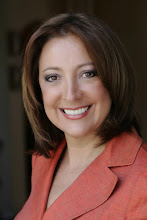Over the thirty-three years of my clinical practice, I have heard from hundreds of clients about the painful repercussions in a child’s life when one parent betrays the other.
I felt compelled to write this book because I believe the effects of parental infidelity on children
of all ages is a profoundly important issue that has been largely ignored. While much has been written about the impact of divorce on children, and although there are numerous books on how couples can cope with the fallout of marital infidelity, little attention has been paid to how children are affected by a parent’s unfaithfulness. What are the emotional consequences for the child—young or adult— when his or her parent cheats? How can parents undergoing an infidelity
crisis help their child cope with his or her reactions? And how might adult children deal with their own parental infidelity-related issues? My objective was to write a comprehensive book for mainstream readers that would address these overarching questions.
Young children, as well as teens and young adults, may respond to their parent’s infidelity with shock, confusion, rage, cynicism, sadness, shame, or a combination of these reactions. While they have nothing to do with one parent’s decision to cheat on the other, children are often left feeling guilty, hopeless, tainted, or damaged— words they often use. As adults, children whose parents cheated are frequently unable to enjoy a healthy relationship because they are plagued by a profound lack of trust, an attraction to partners who cheat, or a proclivity toward infidelity themselves.
skip to main |
skip to sidebar

A look into my work and passion for service.
About Me

- Dr. Ana Nogales
- I am a clinical psychologist with years of experience helping clients whose lives have been impacted by parental infidelity.
My other blogs
Facebook Badge
Blog Archive
Dr. Ana Nogales Fan Box
Follow me on Facebook
Labels
Marriage
Dr. Ana Nogales
relationships
Infidelity
Parents who cheat
Child
Family
Mental Health
Violence and Abuse
Domestic violence
Parent
Television program
Casa de la Familia
Forgiveness
Therapy
Cheating
Divorce
Extramarital Affairs
Latina
Telemundo
Tips
Twitter
success
Book of love
Latina Power
Los Angeles
News
On the Web
Facebook
Husband
La Opinion
Mother
Nogales Plaza
Social network
Univision
Wife
California
Google
Isabel Allende
Loretta Sanchez
New York
OCRegister
Para Todos
Santa Ana
video
© Copyright 2009 | Blogger Template By Lawnydesigns
Powered By Blogger


